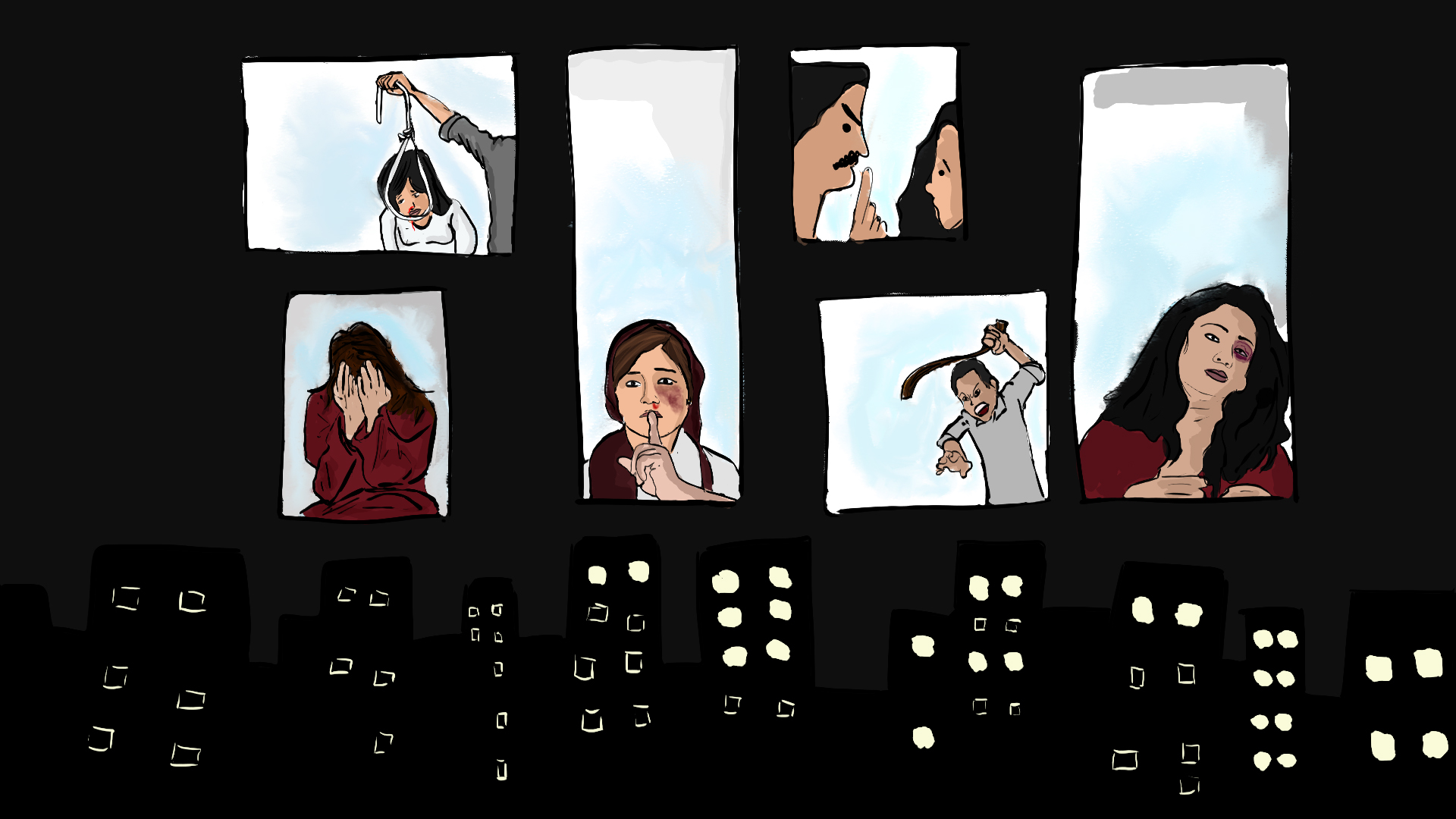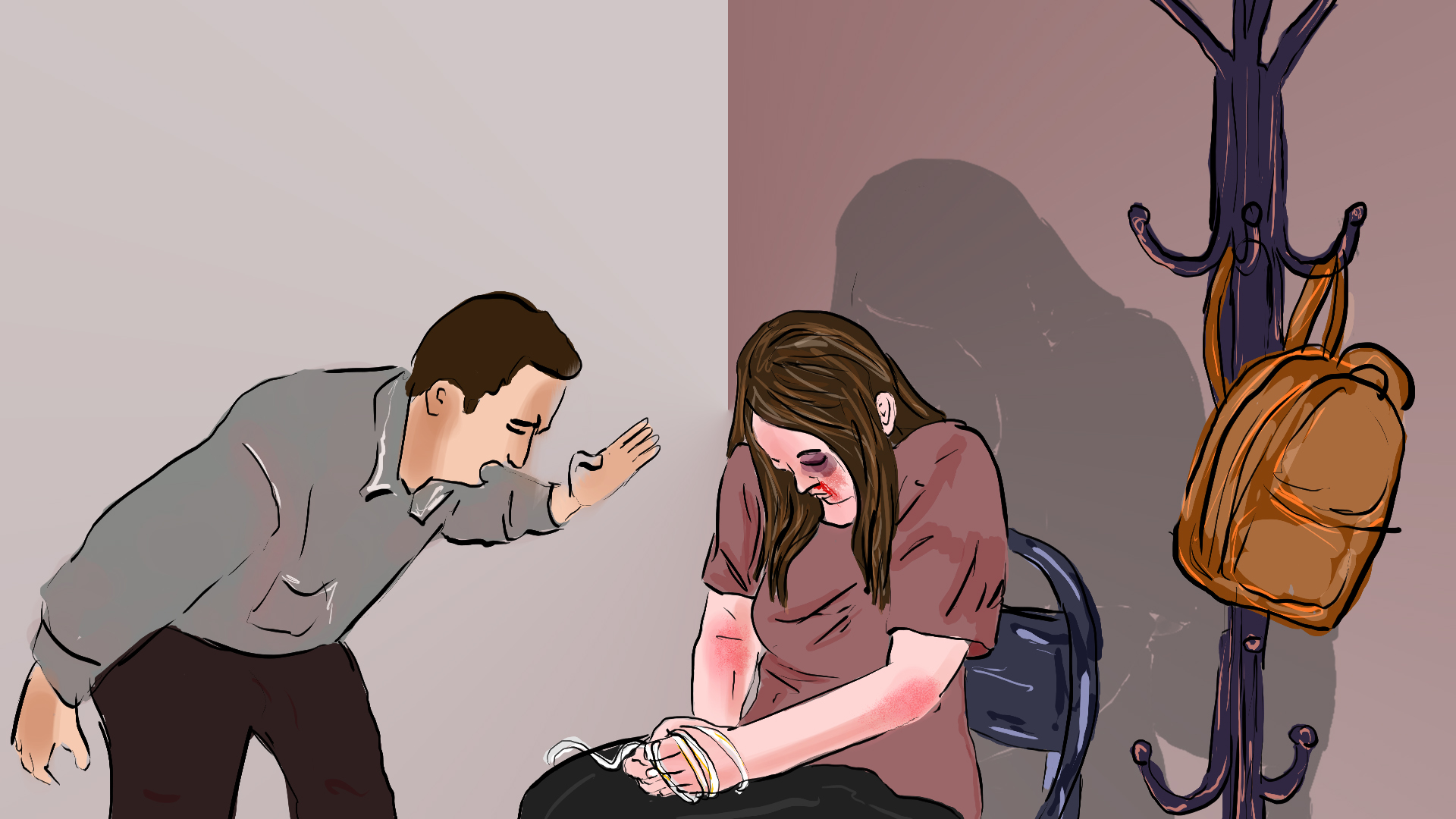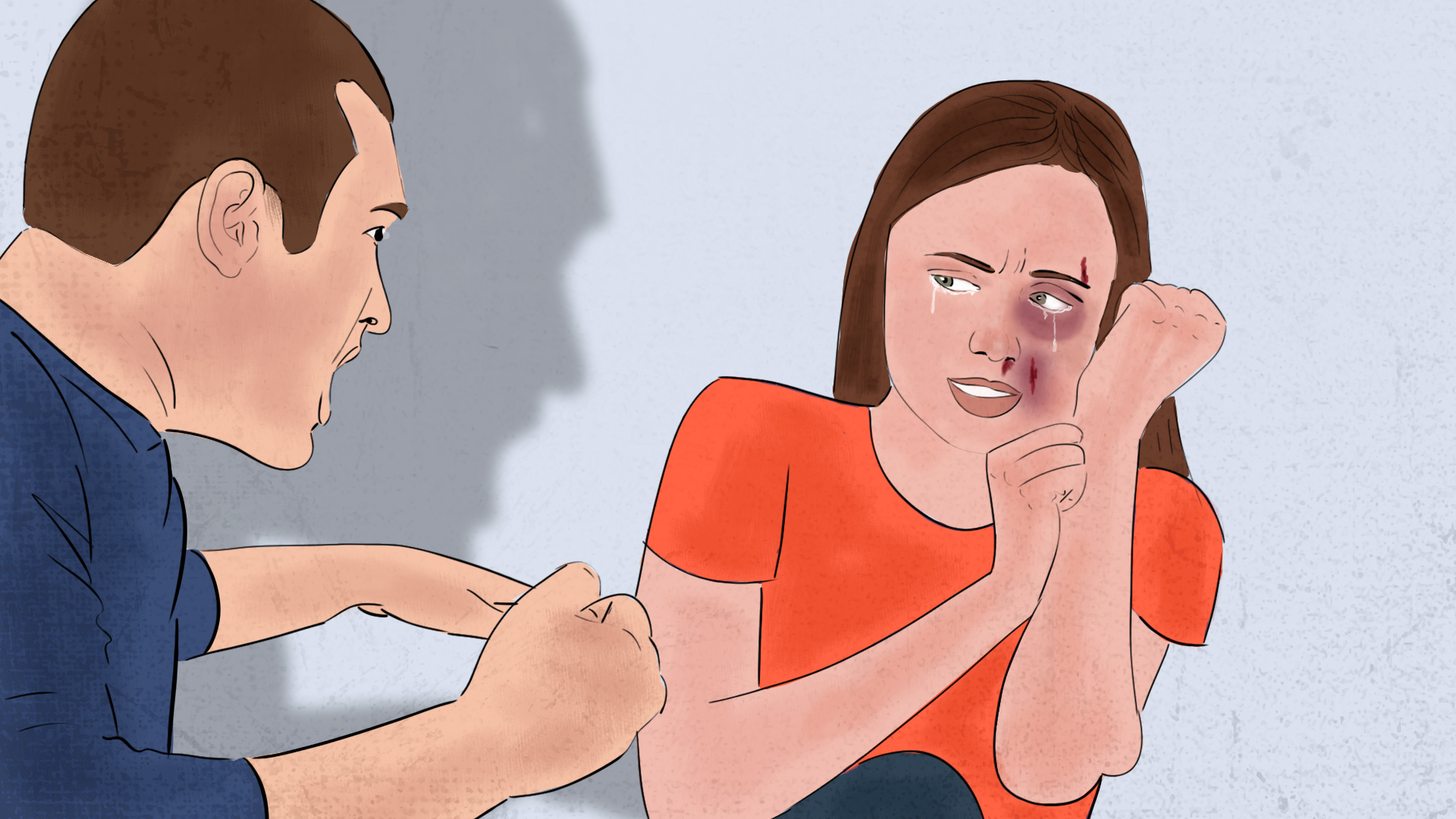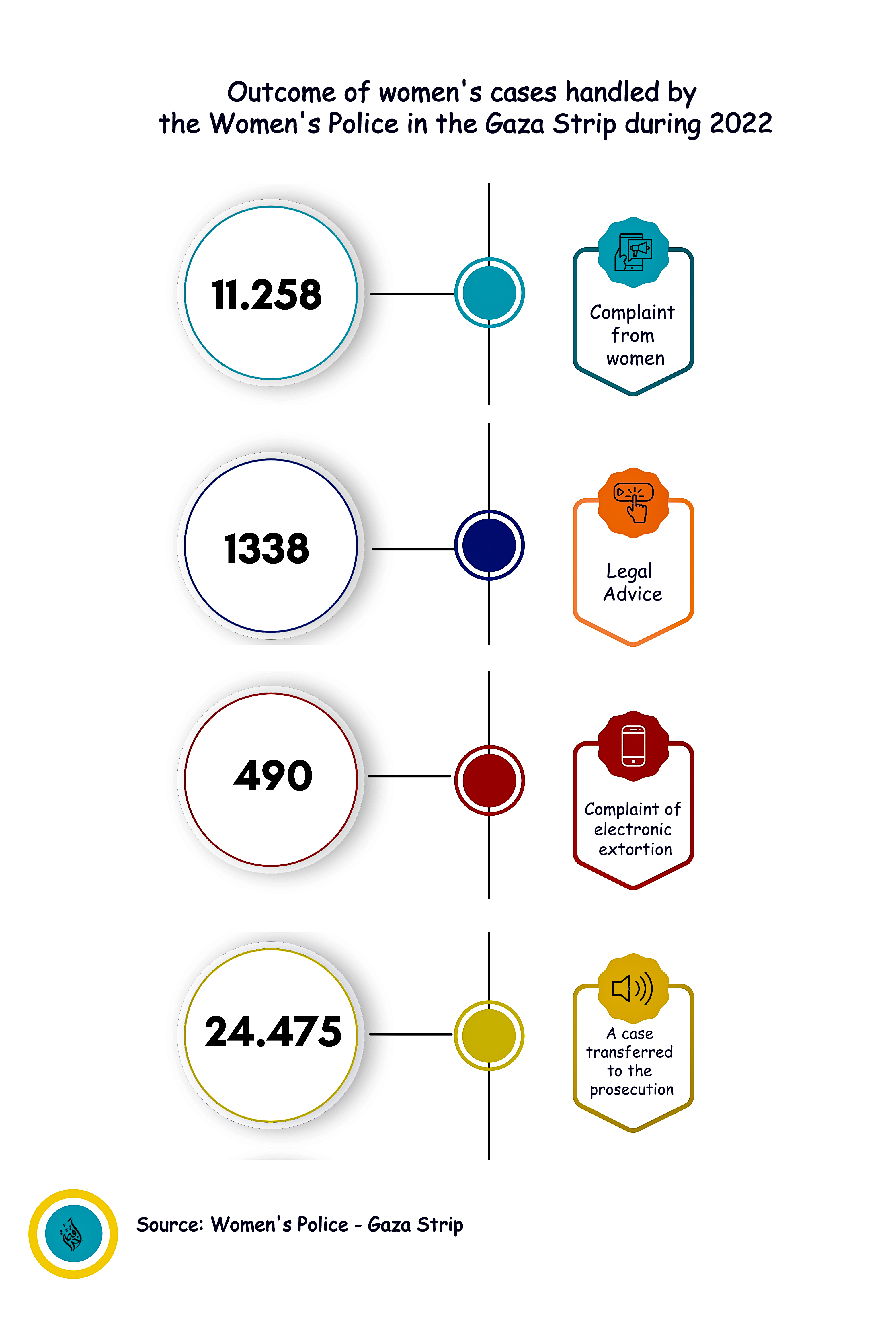The Sharia lawyer Mushira Abdullah (pseudonym) found no opportunity but to escape the reality of humiliation, beatings and violence she suffered from her husband, and she took refuge in Al-Aman House, a government house affiliated with the Ministry of Social Development in the Gaza Strip.
Mushira, 26, who lived in the Rafah governorate in the southern Gaza Strip, said she had been defending women while working as a lawyer, but that the harshness of life and lack of support made her a victim of domestic violence.
The woman, who supports a child in his third spring, finished studying Sharia and law, and pleaded dozens of lawsuits in defense of rights, but she did not manage to escape the grip of the joint violence that afflicted her from her husband, his sisters and her brother as well.
Mushira is one of 532 women who sought refuge in the safety house in 2022, the highest percentage compared to the last three years, with a difference of almost 200%, according to official statistics.
The investigator met with a number of women who had been subjected to violence, but they refused to talk about their experience for two reasons: first, they did not like to open their wounds again, and remember the tragic situations they went through. Second, they are afraid of the parents' oppression if it is easy to identify their story, especially since they live in a society known for its strict customs and traditions.
In light of this, the investigator published an opinion poll – considering complete confidentiality – in order to measure violence against women in the Gaza Strip and identify the causes and motives of such violence.
The poll found that most of those who were subjected to violence were over the age of 25, and this violence is concentrated in Gaza governorate, at 60%, followed by Rafah governorate at 20%, while the central and northern governorates constituted the lowest percentage, 10% each, while Khan Younis governorate did not record any attacks.
The survey also showed that the percentage of women who were subjected to violence was equally distributed between married and single women by 50% each, and the causes of violence varied between attempts to impose control by males, whether husband or father. Another is motivated by bullying, and a third is described as psychological and family reasons such as behavior correction or allegedly in the context of "education".
Returning to Mushira's story, she was subjected to physical and psychological violence from the beginning of her marriage, as a result of the instigation of her sisters-in-law, she said. She continued like this for several months, until she had to seek safe shelter.
Earlier, she sought refuge in her uncle's house, who refused to contain her on the grounds that he had male- sons inside the house and felt it was difficult to accommodate her among them. She then took refuge in her brother's house, who abused her, subjecting her to 15 days in prison, with the aim of forcing her to return to her husband's house. Describing his treatment of her, she said, "I saw him have the most violent kind, the whole tragedy, he was banging my head against the wall."
This continued with Mushira for five months in her brother's house until she suffered a nervous breakdown and lost her desire to live, and this prompted her to think about suicide, until she took refuge in the safe house and there she received a statement of divorce, but she did not obtain her legal right towards her abusers.

Al-Aman House often receives women who have been subjected to violence in all its forms, with the exception of those who use and are addicted to drugs, said Suhad Quneita, Al-Aman house's director.
Quneita told "Last Story" that violence against women is a result of the unstable environment in the Gaza Strip and that its percentage is rather large, indicating that the Bayt Al-Aman Foundation provides its services to those women who are subjected to violence, including shelter, treatment, education, and others.
The circumstances of each case residing inside the house vary, according to Quneita, of those who reside against the background of sexual assault when they are under the age of 18, others on family disputes, and a third category following marital disputes, noting at the same time that the home receives cases of different age groups ranging from 14 years to 60 years.
However, the home does not receive drug addicts, prison graduates or those with intellectual disabilities," according to Kenita, who said they provide legal and psychological care, protection and shelter services, as well as recreation and education services for battered women or survivors of violence.
According to our survey, "brother" occupied the largest share of the percentage of a violent person out of five abusers, at 33.3%, while the percentage of father, son, husband, etc. was 22.2% each.
In answer to a question, has violence ever led you to think about suicide? 62% of the respondents had not thought of that. While 25% of them had think about it. Most did not receive psychosocial support to confront the violence and relied on themselves to confront it.
All of the respondents confirmed that the person responsible for the violence was not held accountable. While 83% of them, their families did not contribute to put an end to the violence they endured by their husbands, but Only 16% received help from their families.
It was found that 66% of them did not ask anyone for help, while 44% still need help now, but they did not tell anyone for various reasons, including that there is no support, others out of fear for reputation or what they called fear of 'scandals', a third party due to social status, and a fourth due to lack of a solution.
Lawyer and feminist activist Ruqaya Abu Mandeel explain that the majority of abused women do not ask anyone for help, because there are fears placed on women, whether from their husband, father or son, so she prefers to keep quiet about the violence they face within the family.
While the majority of women prefer to remain silent about the violence they face, seventeen-year-old Samah Khaled (pseudonym) decided to seek help from Al-Aman Foundation.
A step that may seem shocking in a society where family problems are often solved by tribesmen instead of judges, but in any case, Samah did so boldly, after the form of violence she faced at the hands of her father increased.
The story began as told by the girl whose parents separated about 15 years ago, when the stepmother was abusing her and her sister and inciting her father to do the same. "Whenever I complained to him about his wife's actions, he would abuse me instead of relieving me, and he forbade me to see my mother, who remained unmarried, in the hope of taking us back to her custody, until she was unable to do anything and got married," Samah said.
The girl continues her story with tears frozen in her eyes: "My father and his wife treated us badly. He would beat my sister and me abnormally, hang us in Najaf, burn our bodies with cigarettes, torture us with sharp objects, beat us very violently, tie our hands and legs with a rope and extinguish cigarettes in our bodies and in our heads".

Returning to the poll that measures violence against women in Gaza, 44% of them were physical and verbal, while sexual assault was 11%. The forms of physical violence varied between hand assault by 37%, assault with sharp objects by 12.5%, and the rest of the forms under the name (other) constituted 50%.
Had the counsellor not intervened in the school where the girl was receiving her education, following her observations of the effects of violence and torture on her body and that of her sister, she would have continued to suffer both within the corridors of the family.
Samah said, "The school's guidance counselor tried to help us and urged my father several times to stop abusing us, but he didn't care. The counselor even suggested contacting the shelter, and it was the right decision that we made. Now we receive great care inside the shelter, and we can even see our mother whom we were deprived of seeing for a long time."
The director of the shelter, Sahad, indicates that the length of stay in the shelter is not conditional. "There are cases where individuals stay for a day, a week, or a whole year, and there are cases where their stay can last for a long time because it depends on resolving the problem they are facing. If the situation remains the same, there will be no possibility of leaving the shelter," she said.
She also emphasized that the first step she takes in dealing with cases, especially women who are physically abused, is to ensure their safety after a medical examination and obtaining the necessary treatment, and then obtaining information and clarifying the problem they are facing.

Theoretical data indicate an increase in the percentage of women reporting violence in the Gaza Strip. Mohammed Nasar, Director of the Department of Studies and Statistics at the Ministry of Social Development, explains that this increase is due to the higher awareness among women regarding their protection from violence.
Nasar said in an interview with "Last Story" " The high number of women who have taken refuge in the safety house is due to the campaigns spread through social media that talk about the importance of this house. These campaigns played a role in women resorting to it and thus increasing their numbers."
In his explanation of the 200% discrepancy between women who sought help during the past year 2022, compared to 2020, He said that it was due to the fact that the percentage was lower three years ago as a result of the conditions of the Corona pandemic, which limited movement within the community due to the closure and the inability to reach Al-Aman house.
He also noted that the number of women who seek help from the ministry through the shelter ranges from 20-25 women per month, "a variable rate depending on the interventions by human rights institutions, reform men, and community police to solve issues and problems in pursuit of the return of women to their homes," he said.
In light of this reality, it was necessary to know the extent to which Palestinian law preserves women's rights and protects them from violence, and whether the abused women necessarily have to report to official authorities (the police) to be protected.
Lawyer and feminist activist Rukaya Abu Mandil answers: "When talking about laws and legislation in Palestine, we find ourselves facing a set of contradictory and incompatible laws with each other and not consistent even with the reality of Palestinian women and not compatible with international human rights law."
Despite this contradiction in the laws, according to Abu Mandil, who said that these laws have provided sufficient protection for women, they aspire to more and to enact a law protecting women from violence for its role in protecting women and protecting the rest of the family as well.
The lawyer pointed out that a set of judicial circulars was recently issued, saying that "they are in favor of women, but they sparked a lot of controversy due to the public's lack of awareness of the importance of these circulars."
Despite the importance of the law in protecting women, it appears that there are two factors that govern the rules of dealing with the violence against women file by the police in the Gaza Strip, namely "flagrant violence and filing a complaint."

In light of this, Colonel Naremeen Adwan, director of the Women's Police Department in the Gaza Strip, said, "We follow the case according to the wishes of the abused woman. If the violence against her is severe and there is significant harm, we take full legal action and refer the case to the Public Prosecution."
And what about those who do not file complaints? Adwan said, "There are women who have come to us and refused to file official complaints against their abusers and only talked about their problems. In this case, they need special treatment and only psychological support."
According to Adwan, abused women used to hesitate to file complaints through the police, perhaps not trusting the Women's Police Department, which justified the priority given to local community institutions in this role, as they were more trusted by women in receiving their complaints and listening to them.
The director of the Women's Police Department explained that women still face problems related to "electronic extortion," which increased by 200% during the past year of 2022, compared to the previous year, she said, while the percentage of severe physical abuse against women has decreased.
If we consider that the majority of abused women in Gaza society did not seek help from anyone for fear of the risks they might face if they reported the violence against them, this reinforces the assumption that abused women who still suffer in silence behind the veil of fear, customs, and traditions are more than those who report it.






